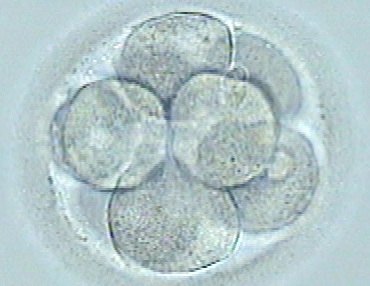
Embryonic arrest, why don’t all of my embryos develop equally?
When one starts an in vitro fertilisation (IVF) treatment, one of the most frequent concerns is the number of high quality embryos that can be obtained.
This number is variable and depends on several factors such as the ovarian reserve and gamete quality (egg and sperm). Once the eggs are fertilised, they are considered embryos, which begins after their early division. The embryo division is observed in the IVF laboratory on a daily basis and is key information to determine the embryo quality. The Spanish Association of Reproductive Biology (ASEBIR) establishes a classification according to various observed morphological parameters, which indicate the embryo quality according to their capacity to implant in the womb.
It is quite common to see that embryos from the same cohort (from the same ovarian stimulation) do not have the same development, have slower division or even arrest before they reach the blastocyst stage.
Causes
Although there is no clear answer, some studies suggest that embryos arrest is a consequence of the inability to activate genes important for development and due to chromosomal defects, in addition to the stress produced by the environment to which they are subjected (temperature, humidity, pH, gas concentration, etc.).
It should be noted that embryo arrest in vitro is useful as a biological mechanism to reject those embryos that do not meet certain quality criteria, allowing us to transfer embryos with greater potential for implantation.
Future prognoses
Current studies may shed more light on the causes of arrested embryo development. New technologies such as time lapse monitoring are very useful because they offer us a wealth of helpful information to predict which embryos are most suitable for implantation and the moment an arrest would happen. Furthermore, various molecular techniques directly relate genetic factors (chromosomal alterations, fragmented sperm DNA …) with poor embryo development.
Therefore, it is very important to perform the necessary previous analyses that help us to get a proper diagnosis and individualized and successful treatment
IT MAY ALSO BE OF INTEREST TO YOU
- In vitro fertilization at Instituto Bernabeu
- Embryo transfer
- Blastocyst embryo: What it is, advantages, types and classification according to its quality
- Criteria for embryo classification
- Embryo normal and abnormal division
- NEGATIVE IVF: Everything you need to know after a failed IVF
